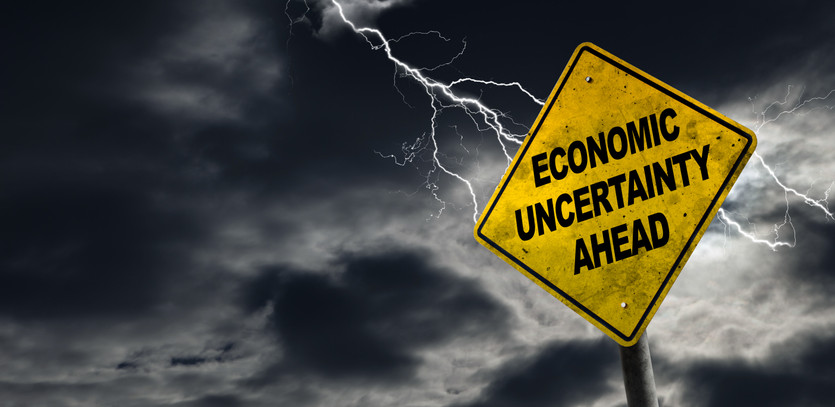When it comes to understanding the financial world, nothing quite stirs up fear, curiosity, and confusion like a stock market crash. But how are these crashes linked to recessions? This comprehensive exploration aims to decipher this relationship, the underlying factors that trigger such events, their consequences, and the measures one can take to navigate these stormy financial seas.
Unraveling the Complexity of Stock Market Crashes
A stock market crash is a sudden, drastic decline in prices across a significant portion of the stock market, leading to a severe loss in paper wealth. This severe economic phenomenon is often driven by panic selling, and can lead to substantial financial damage. Yet, it's essential to understand that these occurrences don't exist in a vacuum - they are intrinsically linked to the broader economy.
Understanding Stock Market Crashes
At its core, a stock market is a public marketplace for the trading of company stocks and derivatives at agreed prices. Stocks represent ownership stakes in corporations, hence, the stock market essentially reflects investor confidence in these corporations' future earnings. These earnings' performance is intimately tied to the state of the economy, thereby making the stock market a potentially reliable indicator of a country's overall economic situation.
In a healthy market, prices rise and fall based on economic fundamentals. However, during a market crash, prices plummet, not necessarily due to fundamental economic changes but typically due to panic selling. This selloff is often precipitated by negative economic news, which leads to a decline in investor confidence. This fear and loss of confidence further drive the sell-off, creating a vicious circle of negativity.
Key Insights into Stock Market Crashes
Stock market crashes occur after extended periods of rising prices and economic optimism, a phenomenon known as 'irrational exuberance.' During these periods, investors, motivated by the fear of missing out, may overlook traditional valuation metrics, pushing prices up significantly beyond what is justified by company fundamentals. When reality catches up, and it becomes clear that these high prices can't be justified, the market can crash dramatically.
Interestingly, and importantly to note, stock market crashes do not always precipitate recessions. The impact of a crash can sometimes be softened or even completely negated by government intervention, particularly when measures are taken to restore investor confidence and stabilize vital economic sectors. Conversely, panic selling – a typical investor reaction during a market crash – often exacerbates the situation, leading to further price declines.
The Ramifications of Stock Market Crashes
A stock market crash doesn't merely represent a loss of wealth on paper. It has real and often severe consequences for the broader economy, potentially leading to a recession. A recession, as defined by economists, is a significant decline in economic activity spread across the economy, lasting more than a few months, normally visible in real GDP, real income, employment, industrial production, and wholesale-retail sales.
Effects of Market Crashes on the Economy
A stock market crash represents a drastic loss of confidence in the economy. If this sentiment isn't corrected quickly enough, it could lead to a recession. Fear and uncertainty often cause consumers to cut back on spending, directly impacting the economy since consumer spending contributes significantly (around 70%) to the GDP.
Key consequences of market crashes include:
-
Restriction on financing for businesses: Companies often rely on selling stock to raise funds for growth and expansion. A market crash makes it more difficult for them to raise capital, which can stifle growth and potentially lead to layoffs and bankruptcies.
-
Global economic implications: A significant crash in the U.S. stock market can reverberate around the world, causing other stock indexes to drop. A global recession may not immediately follow a crash, but the knock-on effects can contribute to a slowdown in global economic growth.
When Market Crashes Don't Lead to Recessions
While the link between stock market crashes and recessions is evident, it's not a surefire connection. A crash does not always have to culminate in a recession, particularly if authorities manage to restore market confidence quickly. One classic example is the stock market crash of 1987, famously known as "Black Monday." Despite the Dow Jones Industrial Average dropping by an astonishing 22.61% in a single day, the largest one-day percentage drop in history, the market quickly recovered after the Federal Reserve took steps to instill confidence by infusing money into the banking system.
Anticipating the Next Stock Market Crash
Predicting precisely when the next significant stock market crash will occur is near impossible. However, understanding certain patterns and economic cycles can provide some insights.
Predicting the Next Stock Market Crash
The next big crash is likely to follow a period of irrational exuberance, during which investors, overly optimistic that stock prices will continue to rise indefinitely, overlook the relevance of the actual underlying economic fundamentals.
Key observations to consider include:
-
These crashes typically occur during the later stages of the business cycle, i.e., when the economy has been operating at or near full capacity for an extended period.
-
During these periods, genuinely innovative and profitable investment opportunities tend to become scarce. This scarcity leads investors to chase any profits that may have been overlooked, often resulting in money being poured into riskier and less promising investments.
-
As more investors flock to these rising trends without a strong financial foundation, they inadvertently contribute to the creation of an asset bubble. This bubble, once it bursts, can lead to a crash, and potentially a recession.
Learning from the Past – Historical Case Studies of Market Crashes
To truly understand the dynamics of stock market crashes and their potential to trigger recessions, it's helpful to study historical instances. Numerous notable events throughout the past century illustrate this connection vividly.
Historical Instances of Stock Market Crashes Leading to Recessions
A handful of notable instances that come to mind include:
-
2008 - The Great Recession: A 500-point drop in the Dow on September 15, 2008, the largest since the 2001 recession's end, indicated a looming crisis of confidence. The ensuing sequence of events led to the infamous Great Recession.
-
1929 - The Great Depression: Over four trading days in October 1929, the stock market crash erased all the gains made during the preceding year. While the crash itself didn't directly cause the Great Depression, it severely damaged confidence in business investment, which undoubtedly contributed to the economic downturn that followed.
-
2001 - The Dot-Com Bubble Burst: The 2001 recession was primarily caused by the dot-com bubble's bursting. The build-up to this event was fueled by the excessive investment in internet-based companies during the late 1990s, culminating in a severe market crash when many of these companies failed.
-
1987 - Black Monday: On this day, the market experienced the highest one-day percentage loss in history. However, thanks to effective intervention by the Federal Reserve, a recession was avoided.
-
1997 - The Asian Financial Crisis: This crisis had a significant impact on the global stock market and contributed to the Long-Term Capital Management crisis in the United States. Although it didn't directly lead to a recession in the U.S., it had severe economic repercussions in Asia.
-
2018 - Record Point Loss: In February 2018, the Dow experienced its most significant point loss in history, which led to widespread concern but did not result in a recession.
-
2020 - The Pandemic Crash: The 2020 stock market crash beginning on March 9 was characterized by record point-loss drops in the Dow Jones Industrial Average within a week, due to the unfolding COVID-19 pandemic. This crash was part of a global economic slowdown.
Personal Impacts of Crashes and FAQs
A market crash can be an unnerving event for individual investors. Still, it's crucial to remember that these events, while potentially damaging, are part of the cyclical nature of the economy.
How Crashes Impact You
To safeguard yourself in the event of a stock market crash, the first step is to avoid panic. Markets can be highly volatile and can lead to widespread pessimism. It's essential to remember that a recession is not necessarily a depression, and opportunities for economic growth can always be found elsewhere in the world. The key to understanding whether a stock market crash is inducing a recession lies in keeping a close watch on economic indicators.
As we delve deeper into the subject, several questions tend to pop up repeatedly:
- How do you make money in the stock market during a recession?
- What will trigger the next stock market crash?
These and other queries underline the need for continuous learning and staying informed about the complex and ever-changing financial landscape.
In conclusion, while stock market crashes can indeed signal the onset of a recession, this isn't always the case. By gaining an understanding of the dynamics of the stock market and the economy, one can better navigate these challenging waters, making informed decisions and potentially safeguarding or even growing wealth.





